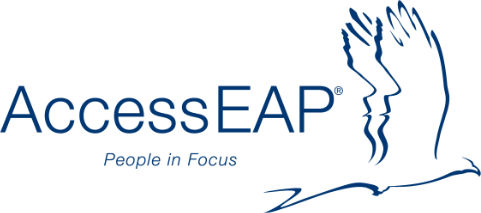
Timing is Everything
The theme of our wellbeing calendar this month centres on having courageous conversations. There are many contexts in a workplace that require us to find courage and have discussions that feel uncomfortable. An example which comes to mind is a manager providing feedback on an employee’s work performance or behaviour. Whilst these conversations are necessary the immediate impulse for many of us is to avoid, avoid, avoid.
How appealing is it to think that if we just ignore it, and carry on as if nothing is wrong, the issue will eventually resolve itself? The reality we see at AccessEAP is quite different. People begin to feel resentful when issues are left unacknowledged or unresolved. Tensions often build up and people ‘blurt out’ their frustrations at inappropriate moments and in an unconstructive manner.
It is tempting to want to avoid hurting or upsetting the person we are speaking with, by blaming someone or something else. While this may seem like a gentle approach which may take some of the heat out of the discussion, often the other person can detect the lack of honesty in our response. It takes courage to have a genuine and transparent discussion around sensitive issues or concerns as they may respond with anger, tears, or distress.
One of our role’s here at AccessEAP is to guide and coach people how to have brave workplace discussions which require honest and clear feedback. What I have learned from our clinical professionals is that timing and planning of conversations is crucial to their success. Grabbing a moment with someone as you pass them in a corridor, for example, or at the end of stressful working day is almost inevitably going to set you up to fail. Arranging a time, preparing for the conversation, choosing the right words, reflecting on the outcome I want to achieve and managing my emotions so they will not limit me are all necessary for a successful conversation.
I am reminded of the phrase to ‘test the waters’ when entering into one of those potentially tricky discussions. What this means, is to get a sense of the emotional state of the person I’m speaking with and to check in with myself. Emotions are powerful and can derail conversations. It is vital that a conversation is had sooner rather than waiting too long although it’s never a good idea to talk to someone if you feel angry. We cannot always avoid angry feelings; the other person may become defensive and upset, so equipping oneself with techniques to de-escalate or manage angry responses is worth considering.
Despite all positive intentions there is still a chance the conversation may not end in a resolution to the issues raised. AccessEAP offers support through our Manager Support Hotline, eg. preparing for a meeting and also can assist you if further conversations are required. Our recommendation is that you call us for suggestions or tips before you have a conversation to help yourself feel more confident. Early intervention through services, such as training or mediation to assist with conflictual situations may be an option. We offer a tailored conflict resolution consultant service for complex situations.
Sally Kirkright, CEO, AccessEAP



